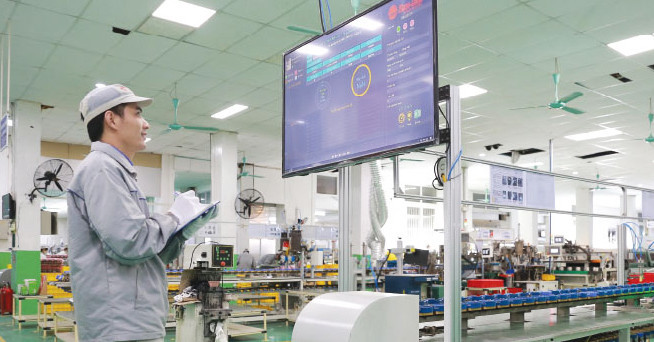
The government has issued an action program to implement Resolution 57, outlining two key objectives and seven specific tasks aimed at advancing science, technology, innovation, and digital transformation nationwide.
On the recommendation of the Minister of Science and Technology and the Minister of Information and Communications, the government has enacted a resolution to implement Resolution 57-NQ/TW, issued by the Politburo on December 22, 2024.
This resolution focuses on breakthroughs in the development of science, technology, innovation, and national digital transformation.
A roadmap for transformative goals
Resolution 57 emphasizes institutionalizing and fully implementing the principles, goals, tasks, and solutions outlined to foster rapid progress in science, technology, and digital innovation.
The resolution also mandates ministries, sectors, and localities to develop action plans, oversee implementation, and evaluate the progress of these initiatives.
The ultimate objective is to position science, technology, innovation, and digital transformation as the primary drivers of economic and social advancement.
By doing so, Vietnam aims to modernize production forces, enhance national governance, strengthen economic growth, prevent the risk of stagnation, and achieve remarkable progress in the new era.
Seven priority tasks for comprehensive execution
To achieve the goals set out in Resolution 57, the government has tasked ministries, governmental agencies, and local authorities with implementing seven key initiatives:
Enhancing awareness and breaking traditional mindsets
The program calls for bold leadership and a strong political commitment to inspire nationwide momentum for advancements in science, technology, and digital transformation.
Streamlining policies and regulations: Immediate and decisive action is required to remove institutional barriers that hinder development, transforming regulatory frameworks into competitive advantages for innovation and digital progress.
Investing in infrastructure: Strengthening and modernizing infrastructure to support science, technology, and national digital transformation is a crucial priority.
Developing and utilizing high-quality human resources: Talent and expertise are critical to the success of this initiative, with a focus on nurturing and retaining skilled professionals in the fields of science, technology, and digital innovation.
Accelerating digital transformation across government systems: The adoption of technology and innovation will enhance national governance, improve administrative efficiency, and ensure security and defense capabilities.
Fostering innovation in businesses: Encouraging companies to embrace scientific advancements and digital solutions is essential to drive economic competitiveness.
Expanding international collaboration: Strengthening global partnerships will play a pivotal role in advancing science, technology, innovation, and digital transformation in Vietnam.
Setting the foundation for a digital future: The resolution will take effect on January 9, 2025, marking a significant step toward Vietnam’s vision of becoming a modern, prosperous nation driven by science and technology.
By addressing existing challenges and capitalizing on global opportunities, Resolution 57 sets a clear path for Vietnam’s leadership in innovation and digital transformation.
Trong Dat